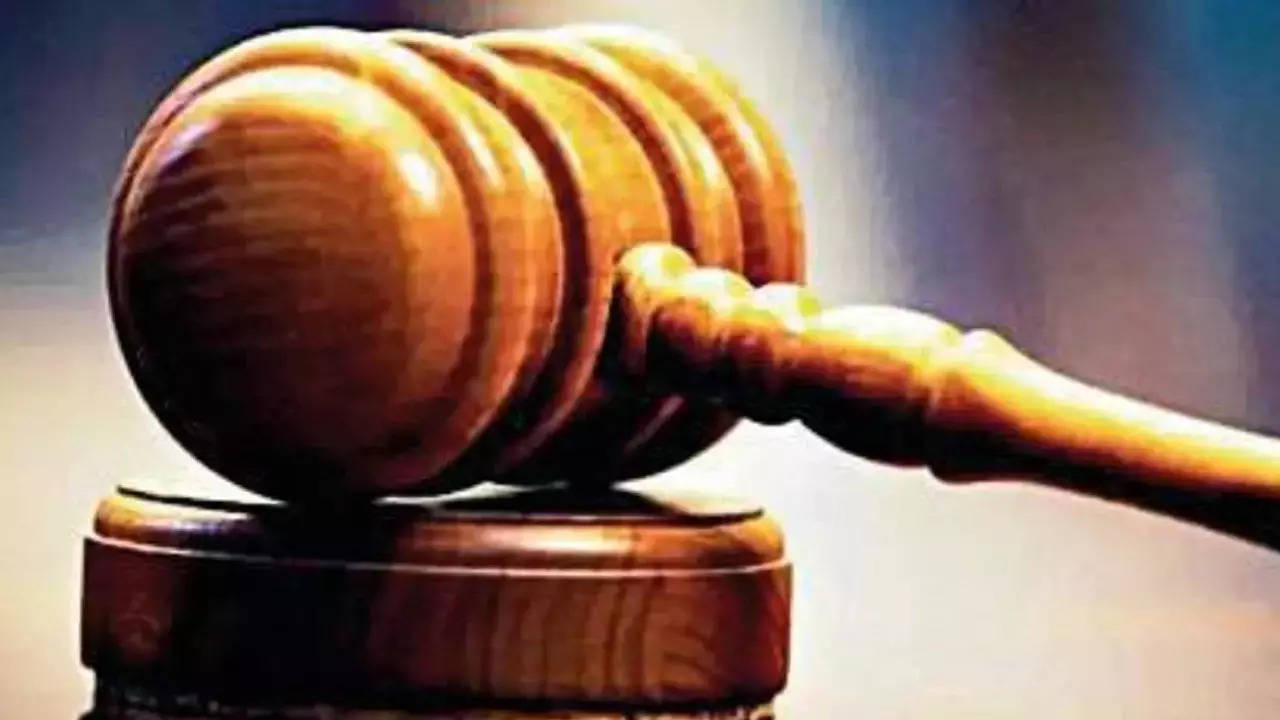KOLKATA: Two Calcutta HC benches took up Sandeshkhali-related incidents on Tuesday, with one bench scrapping Section 144 of CrPC imposed by the state saying due process was not followed and the other suo motu taking up media reports of allegations of land-grabbing and torture, reports Subrata Chattoraj.
Justice Jay Sengupta junked the imposition of prohibitory order across Sandeshkhali Police Station area on the grounds that the state could not produce records of incidents that had warranted such an action.The judge was not satisfied with the state’s argument that it was done to bring down tension.
“There is no mention of specific areas under tension and the scale of tension. Even the sub-divisional magistrate’s satisfaction in this regard is not clear,” the court observed. “After this you will say there is tension in Kolkata… and so there is need to clamp section 144 across the city,” Justice Sengupta observed.
The court, however, granted the state liberty to pray for promulgation of Section 144 with respect to “exact area of disturbance”, for instance, at the two places where attacks were reported “within a radius of a few metres”. Advocate general Kishore Datta had mentioned two scuffles on Feb 7 and Feb 12. Two petitioners from Sandeshkhali had moved HC against the imposition of Section 144.
A second Calcutta HC bench on Tuesday took suo motu cognizance of media reports of allegations made by Sandeshkhali villagers and appointed advocate Jayanta Narayan Chattopadhyay as amicus curiae to look into these. Justice Apurba Sinha Ray said he was particularly upset with media reports relating to grabbing of land belonging to Adivasis and sexual abuse of women.
The judge directed public prosecutor Debasish Roy to be present during the next hearing on February 20.
Hearing the plea against imposition of Section 144 CrPC, Justice Sengupta noted that there were serious allegations against some members of the party in office and held that prohibiting movement of villagers without taking the prime accused into custody could invite more trouble.
When state counsel Amitesh Banerjee argued that the administration had not stopped free movement but just prohibited assembly of more than five people and the petitioners were only two from the entire area who had moved court, the judge said, “Police had not registered any complaints from villagers over the last three years. Women villagers are feeling insecure and you are raising points on technicalities of the case. The court can’t keep its eyes shut on some of the points mentioned in the petition.”
Justice Sengupta also expressed dismay that the police officers against whom villagers had complained were the ones who had been put in charge of investigation and were in charge of overseeing law and order in the area.
Senior counsel Bikash Bhattacharya argued the prohibition order needed to be lifted to ensure security of the villagers.
Justice Jay Sengupta junked the imposition of prohibitory order across Sandeshkhali Police Station area on the grounds that the state could not produce records of incidents that had warranted such an action.The judge was not satisfied with the state’s argument that it was done to bring down tension.
“There is no mention of specific areas under tension and the scale of tension. Even the sub-divisional magistrate’s satisfaction in this regard is not clear,” the court observed. “After this you will say there is tension in Kolkata… and so there is need to clamp section 144 across the city,” Justice Sengupta observed.
The court, however, granted the state liberty to pray for promulgation of Section 144 with respect to “exact area of disturbance”, for instance, at the two places where attacks were reported “within a radius of a few metres”. Advocate general Kishore Datta had mentioned two scuffles on Feb 7 and Feb 12. Two petitioners from Sandeshkhali had moved HC against the imposition of Section 144.
A second Calcutta HC bench on Tuesday took suo motu cognizance of media reports of allegations made by Sandeshkhali villagers and appointed advocate Jayanta Narayan Chattopadhyay as amicus curiae to look into these. Justice Apurba Sinha Ray said he was particularly upset with media reports relating to grabbing of land belonging to Adivasis and sexual abuse of women.
The judge directed public prosecutor Debasish Roy to be present during the next hearing on February 20.
Hearing the plea against imposition of Section 144 CrPC, Justice Sengupta noted that there were serious allegations against some members of the party in office and held that prohibiting movement of villagers without taking the prime accused into custody could invite more trouble.
When state counsel Amitesh Banerjee argued that the administration had not stopped free movement but just prohibited assembly of more than five people and the petitioners were only two from the entire area who had moved court, the judge said, “Police had not registered any complaints from villagers over the last three years. Women villagers are feeling insecure and you are raising points on technicalities of the case. The court can’t keep its eyes shut on some of the points mentioned in the petition.”
Justice Sengupta also expressed dismay that the police officers against whom villagers had complained were the ones who had been put in charge of investigation and were in charge of overseeing law and order in the area.
Senior counsel Bikash Bhattacharya argued the prohibition order needed to be lifted to ensure security of the villagers.
